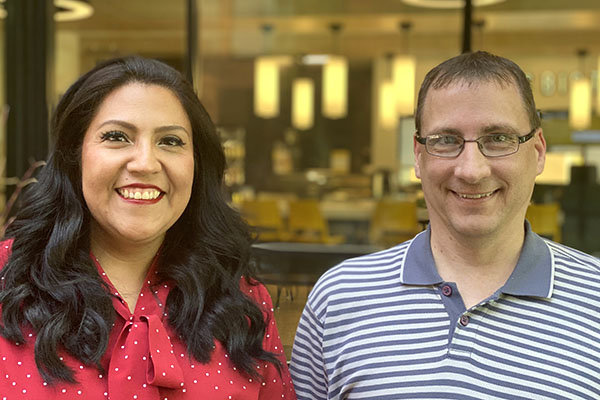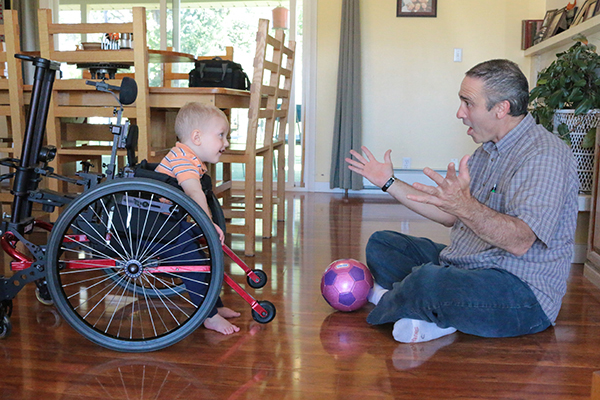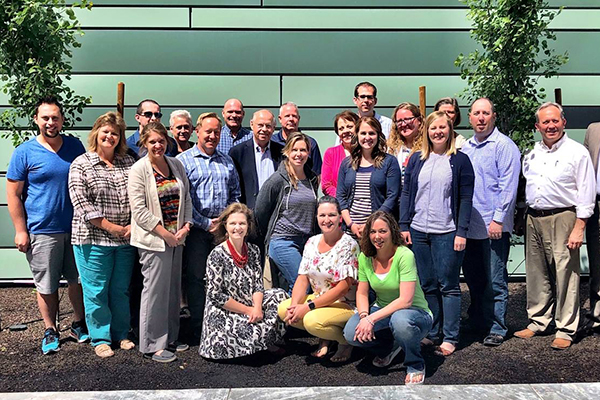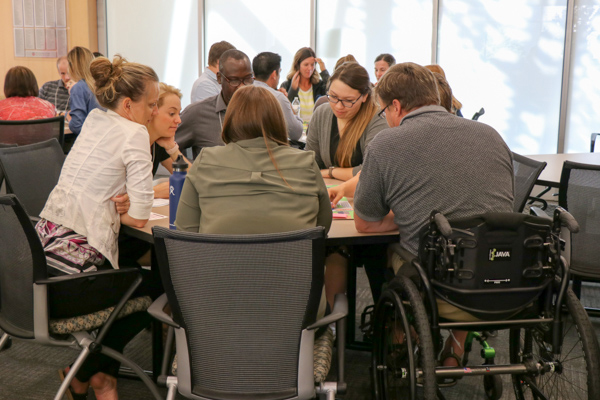IDRPP Divisions
Administration Division
The Administrative Division houses the core administrative team of the Institute for Disability Research, Policy, & Practice, including the IDRPP Business Office, and several signature and pilot projects. Signature grant-funded projects housed under the Administrative Division are entirely self-sustaining and conduct activities that cut across all other IDRPP divisions; pilot or transitional projects housed under the Administrative Division receive short-term support to leverage additional funds to ensure future sustainability. The Administrative Division currently houses the following projects:
- IDRPP Policy Team
- IDRPP Business Office
- Public & School Partnership (Americorps VISTA) Project

Services Division
The Exemplary Services Division offers an array of services to support inclusive communities and improve the lives of children, youth, adults and their families. The Division provides preservice and continuing interdisciplinary education and training to over 25 USU students every year. Our graduate assistantships, internships and student teaching experiences support the College’s efforts to provide outstanding teachers and human services professionals.
Direct services at IDRPP ensure that individuals with disabilities and their families have access to the most innovative diagnostic and intervention practices in the field. Currently, the Division supports Up to 3 and South East Early Intervention programs, the Utah Assistive Technology Program, Stride Services, the Employability Clinic, the Child Care Nutrition Program, and the TOP Sports activities. The Division routinely has additional state and national grants and contracts critical to the advancement of exemplary services.

Technical Assistance Division
The Technical Assistance Division includes the Center for Technical Assistance for Excellence in Special Education (TAESE) and WebAIM (Web Accessibility In Mind).
WebAIM provides a wide variety of services, but the goal is always the same—to expand the potential of the web for people with disabilities by empowering individuals and organizations to create accessible content. WebAIM staff provide training, consulting and evaluation services to organizations, and the WebAIM website also offers free and professional tools to help individuals and organizations understand the accessibility of individual web pages or entire websites. WebAIM has worked nationally and internationally, with government entities, education providers and fortune 500 companies.
TAESE has technical assistance contracts over a 25 state area and the Bureau of Indian Education. TAESE has a long, rich history in providing professional development and technical assistance dating back to 1980. TAESE works at the federal, state, and local levels, working to improve programs and services for individuals with disabilities, including children with disabilities who are attending public school districts and charter schools.
TAESE has numerous projects and centers. WebAIM addresses website evaluation and accessibility. The TASK-12 project includes 13 states with a goal of assessing signing skills of school based sign language interpreters. The Dispute Resolution in Special Education workgroups includes 14 States and provides ongoing professional development for mediators, complaint investigators and due process hearing officers. TAESE provides orientation and training for State Special Education Advisory Panels across the country. TAESE partners in two Office of Special Education Programs (OSEP) Centers, including the Center for IDEA Fiscal Reporting (CIFR) and the Center for the Integration of IDEA Data (CIID). TAESE also works with four states in planning and implementing professional development and technical assistance for school districts in their States.

Research & Training
The Research and Training Division brings together the formerly separate Research and Evaluation Division and the Interdisciplinary Training Division, into one innovative and collaborative unit. The newly designated Research and Training Division engages in a wide variety of forward-looking research and evaluation projects as well as evidence-based training and technical assistance activities. These projects and activities are designed to cross the lifespan and all disability categories of individuals with disabilities and their families as well as provide information and resources to current and future professionals in the disability field.
Between the Research and Training components of the Division, there are projects that touch on each of the core functions associated with University Centers for Excellence in Developmental Disabilities (UCEDDs). Research-oriented projects in the Division include basic and applied research, program evaluation, and analysis of public policy on issues impacting individuals with disabilities. These projects are designed to discover, develop, and validate new knowledge, better intervention techniques, and more successful training procedures that impact the lives of individuals with disabilities. Training and technical assistance projects provide interdisciplinary preservice training and continuing education initiatives designed to ensure that future and current professionals working with individuals with disabilities and their families have the skills and training needed to provide quality services and supports. These projects also provide community education designed to enhance knowledge and skills of individuals with disabilities, their families, and other community stakeholders. Finally, we provide technical assistance activities that focus on direct problem-solving to assist programs, agencies, or other stakeholders in improving outcomes, services, supports, and policies related to disability issues.

Currently, the Division supports several longstanding research and training initiatives under the umbrellas of the Early Intervention Research Institute (EIRI), the Utah Regional Leadership in Neurodevelopmental Disabilities (URLEND) grant, and the Interdisciplinary Disability Awareness and Service Learning (IDASL) project. In addition, at any given time, the Division has several state and national grants and contracts that support innovation in research and training. Division staff are active across the state, country, and internationally.

